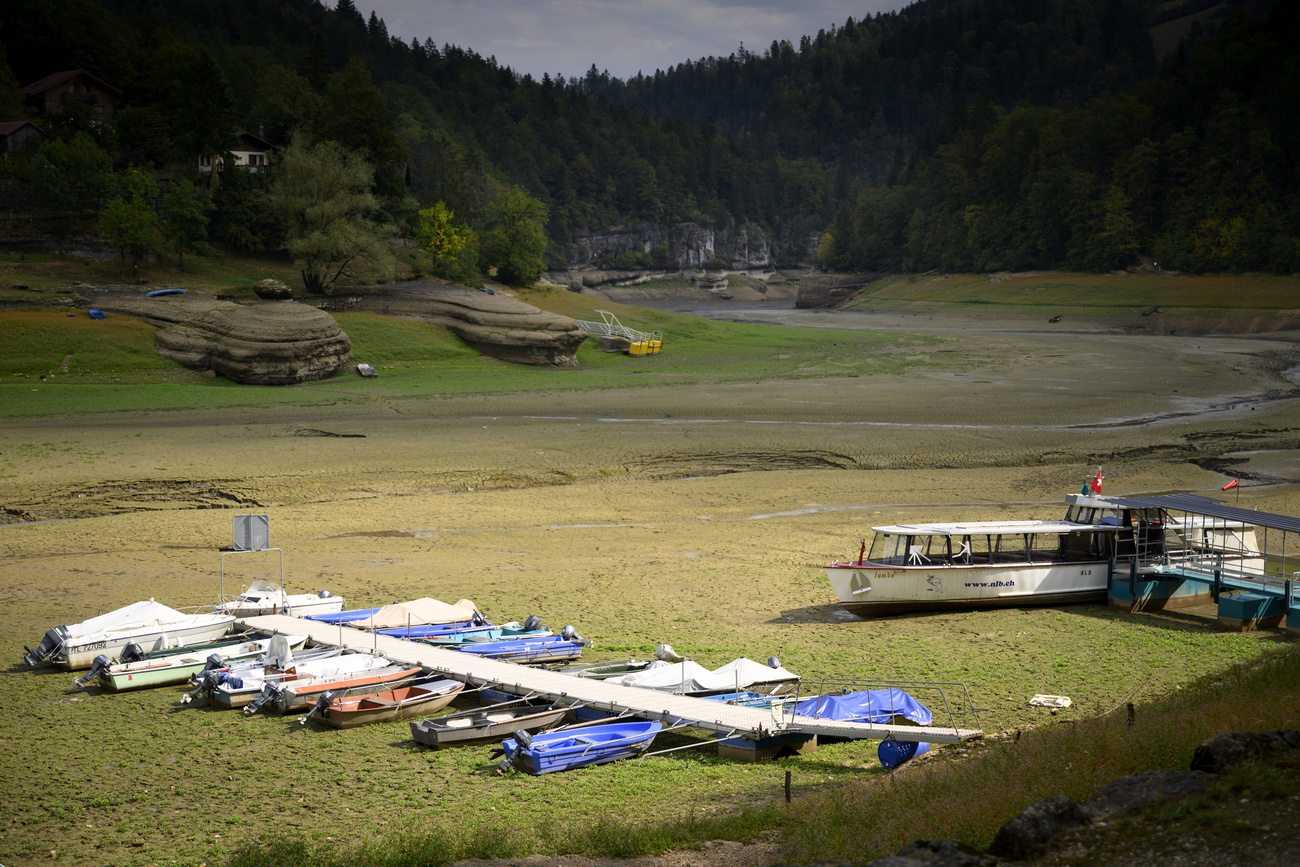
Elderly Swiss women bring European court’s first climate case

Thousands of elderly Swiss women have joined forces in a ground-breaking case heard on Wednesday at the European Court of Human Rights, arguing that their government’s “woefully inadequate” efforts to fight global warming violate their human rights.
The first climate change case at the Strasbourg court has been brought by a group of Swiss female pensioners who claim that their country’s inaction in the face of rising temperatures puts them at risk of dying during heatwaves.
+ Is the climate crisis a threat to human rights?
More than 100 supporters and climate activists from Greenpeace gathered outside the courtroom, holding banners and flowers. They chanted “bravo” as each woman exited the court and blew bubbles and rang cow bells amid clapping and cheering.
Bruna Molinari, who is 81 and suffers from asthma that she says is aggravated by excessive heat, said she hoped the outcome would at least benefit generations to come. “As a grandmother and mother, I think they have the right to have a climate that is better than the one we have,” she said, coughing throughout.
Stefanie Brander, a member of the association Senior Women for Climate Protection, said she felt the government had underestimated the group until now. “We were taken for old women who didn’t have a clear idea of the issues … and I think that could now turn against them,” she said outside the courtroom.

More
Switzerland plummets down international climate rating
Switzerland is warming at more than twice the global rate and its glaciers are melting fast. The government outlined a plan to make deeper emissions cuts but voters rebuffed it in 2021 as too burdensome.
However, lawyer Marc Willers, representing the applicants, said Switzerland had “no excuse for its failure to protect the applicants’ rights”.
“If a country as rich and technologically advanced as Switzerland cannot do its fair share – I go further, does not even take the trouble to assess what its fair share should be – what hope is there that other countries will step up to the challenge we face?” he told the packed courtroom.
The Swiss government, which twice won in domestic courts in a six-year legal battle, has argued that the case is inadmissible. Bern’s lawyer Alain Chablais told the court that any prescriptive measures issued by the court would represent an overreach, giving it a “quasi-legislative” role.
After exhausting domestic legal avenues, the group has taken its case to the tribunal in France in the hope of setting a precedent that will apply to all signatories of the European Convention on Human Rights. It is linked to two further cases brought by other groups that will be heard by the court in the coming months.
The case has been fast-tracked and a verdict is due later this year.

More
Swiss climate hearing to make history at Europe’s top human rights court

In compliance with the JTI standards
More: SWI swissinfo.ch certified by the Journalism Trust Initiative






























You can find an overview of ongoing debates with our journalists here . Please join us!
If you want to start a conversation about a topic raised in this article or want to report factual errors, email us at english@swissinfo.ch.